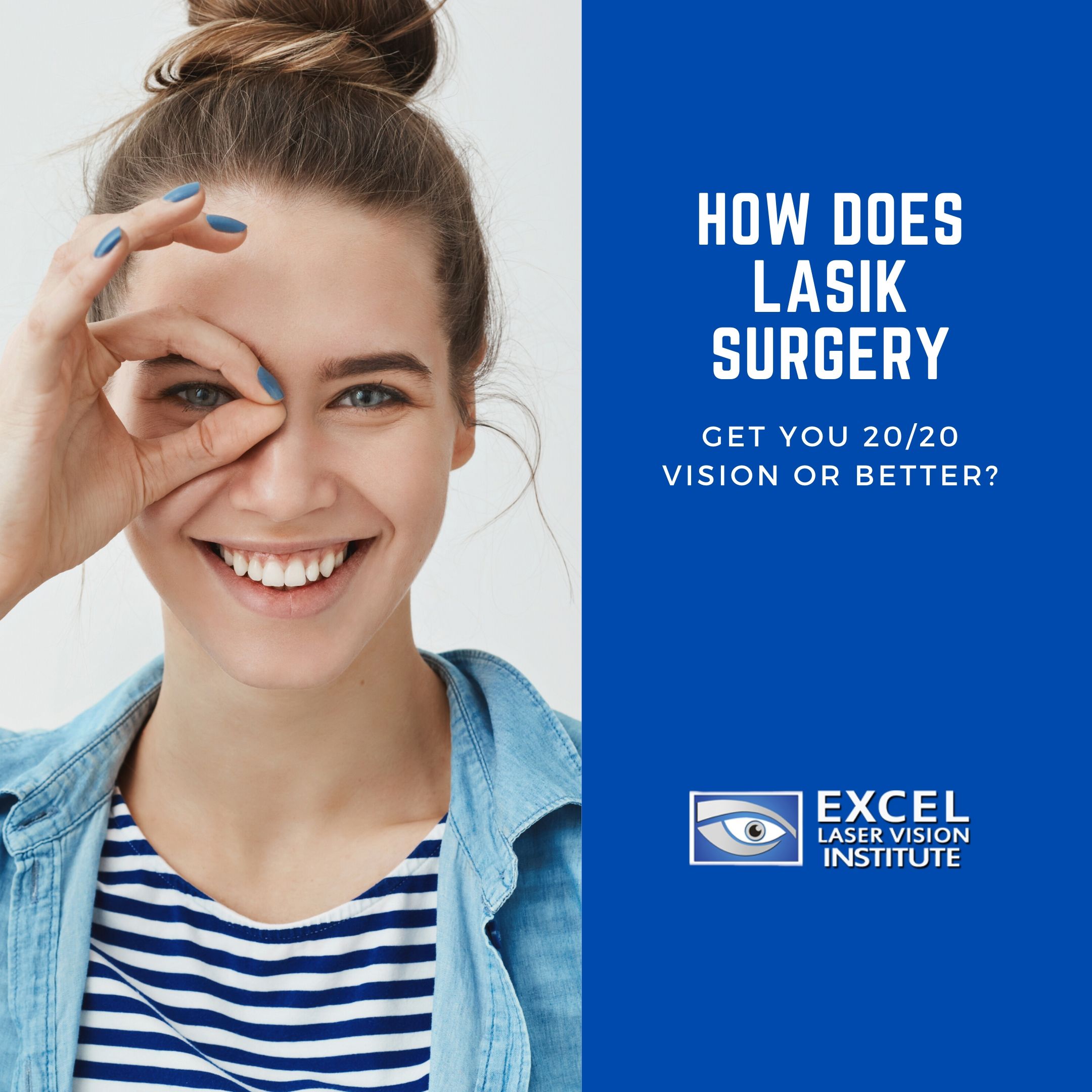
How Does LASIK Surgery in Los Angeles Get You 20/20 Vision or Better?
If you are considering laser eye surgery from a LASIK clinic in Los Angeles like Excel Laser Vision Institute, then you are not alone. LASIK is one of the most common refractive surgeries with a high patient satisfaction rate and precise, long-term results. Many patients are able to achieve 20/20 vision or better with LASIK eye surgery, making corrective lenses unnecessary.
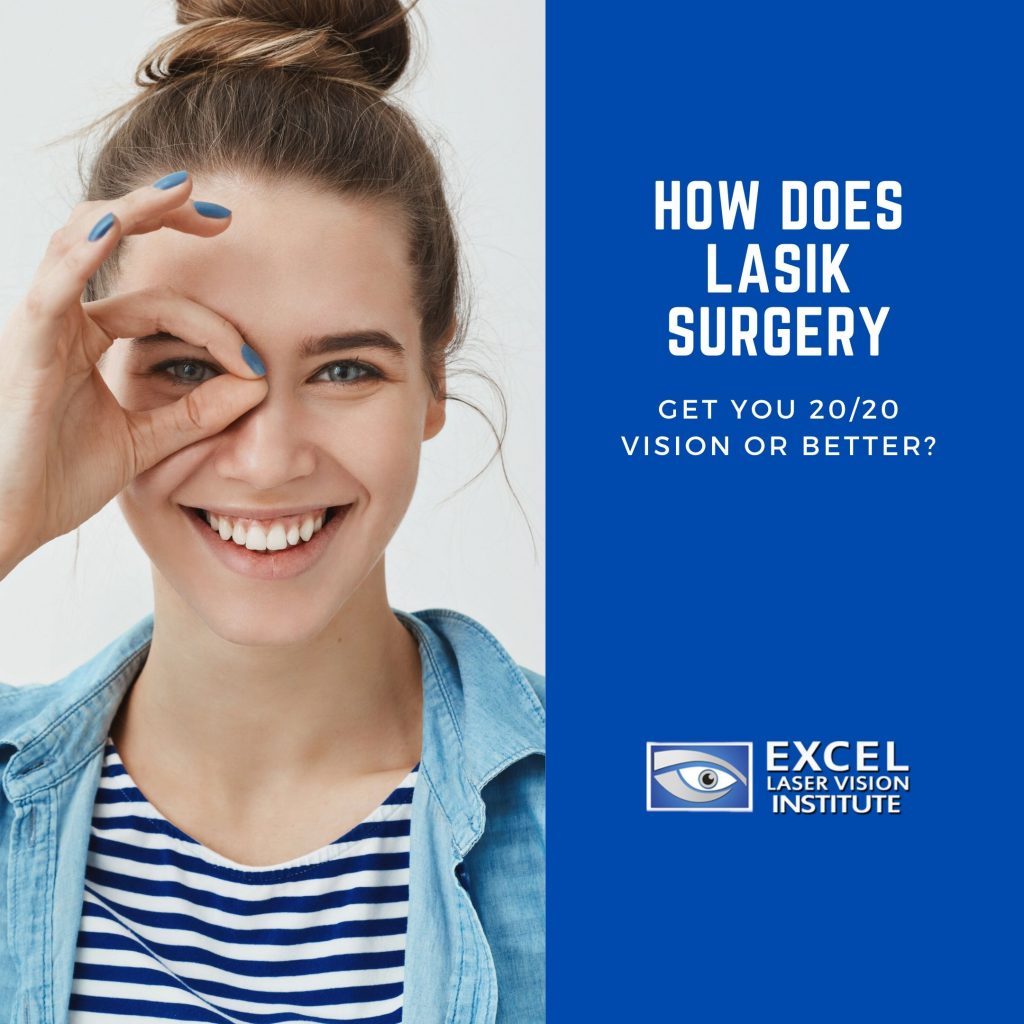
In order to determine if you are a good candidate for laser eye surgery, you should visit a LASIK eye center and have a comprehensive eye examination. Eye care professionals can measure different aspects of your eyesight and determine the best course of action for your vision correction. Every year, LASIK treats thousands of patients with myopia (nearsightedness), hyperopia (farsightedness), and astigmatism problems. See what Doctor Moosa does here:
Many professions require 20/20 vision without corrective lenses such as pilots, military personnel, firefighters, and police. However, only about 35% of adults in the world have this naturally. The value of LASIK surgery in helping individuals follow certain career paths is immeasurable.
LASIK experts can measure your visual acuity with a Snellen eye chart, with 20/20 as the golden standard. Dutch eye doctor, Herman Snellen, invented and standardized this process of measuring vision in the 1860s. While 20/20 is commonly referred to as the perfect vision, this is not necessarily the case. There are some individuals that can read lower on the eye chart after receiving corrective surgery like LASIK, with a measured visual acuity of 20/15 or even 20/10. This is achieved by reshaping the individual’s cornea with precise, customizable laser technology.
Other aspects of vision, besides clarity of images in relation to distance, include depth perception, focusing ability, color vision, side vision, and eye coordination. Eye care professionals can test each of these elements and look at the makeup of an individual’s eye to judge any eyesight problems. During a LASIK evaluation, specialists will walk through a person’s health history and family history as well as performing measurements of eye muscle movements, eye pressure, color vision, and pupil dilation. Other eye diagnostics will find the exact curvature and width of an individual’s cornea in order to better plan for the surgery.
Not everyone can be eligible for the procedure, however, there are many other vision correction alternatives that your LASIK clinic may offer in addition to LASIK. PRK and SMILE are successful refractive procedures that have been known to achieve the same results as LASIK in the case where candidates did not qualify for traditional laser vision correction methods. The best way to find a long-term solution for your vision problems is to visit an established LASIK eye clinic for an exam and consultation.
LASIK eye surgery is an investment that offers more than the convenience of never having to wash your contacts or replace your broken glasses again; although, these are not unimportant benefits. The money and time that you save from these micro expenses can add up over the years, making your laser eye surgery a cost-efficient alternative. Besides, the freedom and quality of life that you gain as a result of clear, independent vision is priceless. There are countless stories of LASIK patients who believe their lives were changed as a result of this procedure. Imagine, waking up and having crystal clear eyesight without having to do anything at all. This is what makes LASIK such a powerful vision correction option.
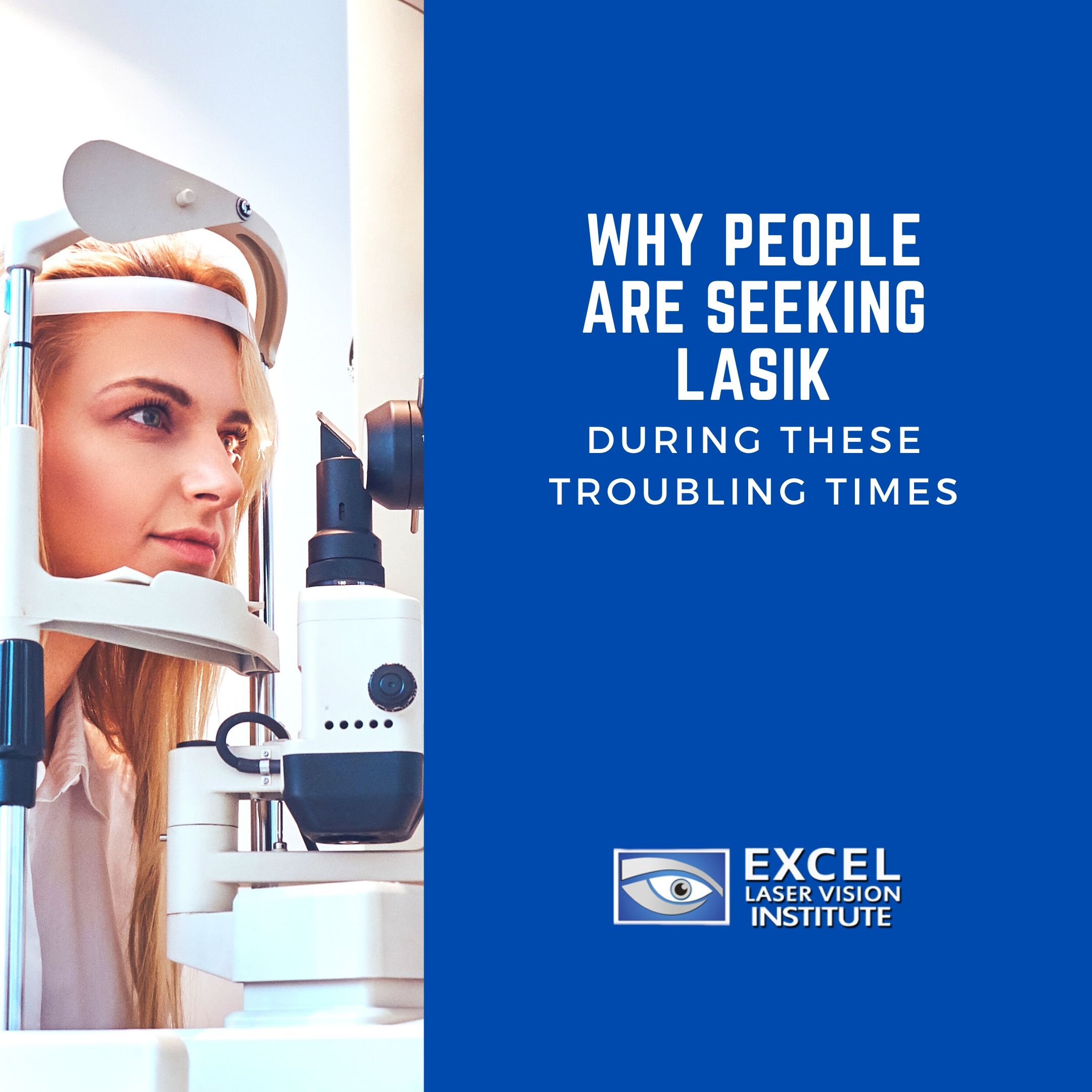
Why People are Seeking LASIK During These Troubling Times
Our eyesight is precious, which is why so many people with vision problems seek out LASIK clinics in Los Angeles. In recent months, the advantages of LASIK surgery have been further experienced by those who have received the procedure and further considered by people who have not. Dr. Moosa, a Harvard-trained surgeon at the Excel Laser Vision Institute, weighs in on this shift in perspective, in light of current events.
With LASIK, life-changing results are just a short procedure away. Here are some of the best ways to prepare for your LASIK surgery and maintain proper eye care afterward.
One of the first things you should keep in mind when preparing for LASIK is finding a dedicated surgeon and well-resourced clinic. Laser eye surgery requires advanced machinery and technical expertise in order to achieve successful results. You don’t want to rush into the elective procedure without first finding a doctor and a clinic that you are confident in.
On the day of the surgery, you should wear loose, comfortable clothing and eat a good, balanced breakfast so that you will feel relaxed, positive, and strong. Refrain from wearing any makeup, lotions, or other face products for a few days before the surgery and bring any medications that you need to the LASIK eye center in Los Angeles like Excel laser Vision Institute. You also want to have a designated driver that will get you to and from your home safely.
LASIK eye surgery is perfect in a time when everyone is trying to avoid touching their mouth, nose, and eyes. Individuals that rely on glasses and contacts touch their face significantly more than those who do not. LASIK offers the freedom of 20/20 vision or better without prescription lenses and thus minimizes the risk of infection that comes with inserting contacts or adjusting glasses.
Many people are considering LASIK surgery in a time where their patience is tested on a daily basis. There is enough to worry about without having to think about replacing your contacts, buying more contact solution, or fixing your prescription lenses. LASIK not only frees you from this inconvenience but it also further mobilizes you to do the things you need to do. This makes LASIK an investment well worth making.
Many patients experience high functioning vision following a LASIK surgery and return to their normal routines within a day. Mild symptoms like reddened eyes or slight irritation may accompany the healing process. LASIK patients should not associate red eyes with bodily infection unless body aches, fever, or breathing problems are also affecting them.
Good eye hygiene includes properly washing your hands, not rubbing your eyes, applying the appropriate post-LASIK eye drops, and attending regular check-ups to monitor the progression of your vision.
LASIK clinics are taking the proper precautions to keep patients and staff safe from infection and promote a positive, healthy environment. Office traffic will be reduced along with increased cleaning of surfaces and equipment. Now is the time to consider LASIK eye surgery to improve your quality of life, everyday convenience, and long-term freedom.
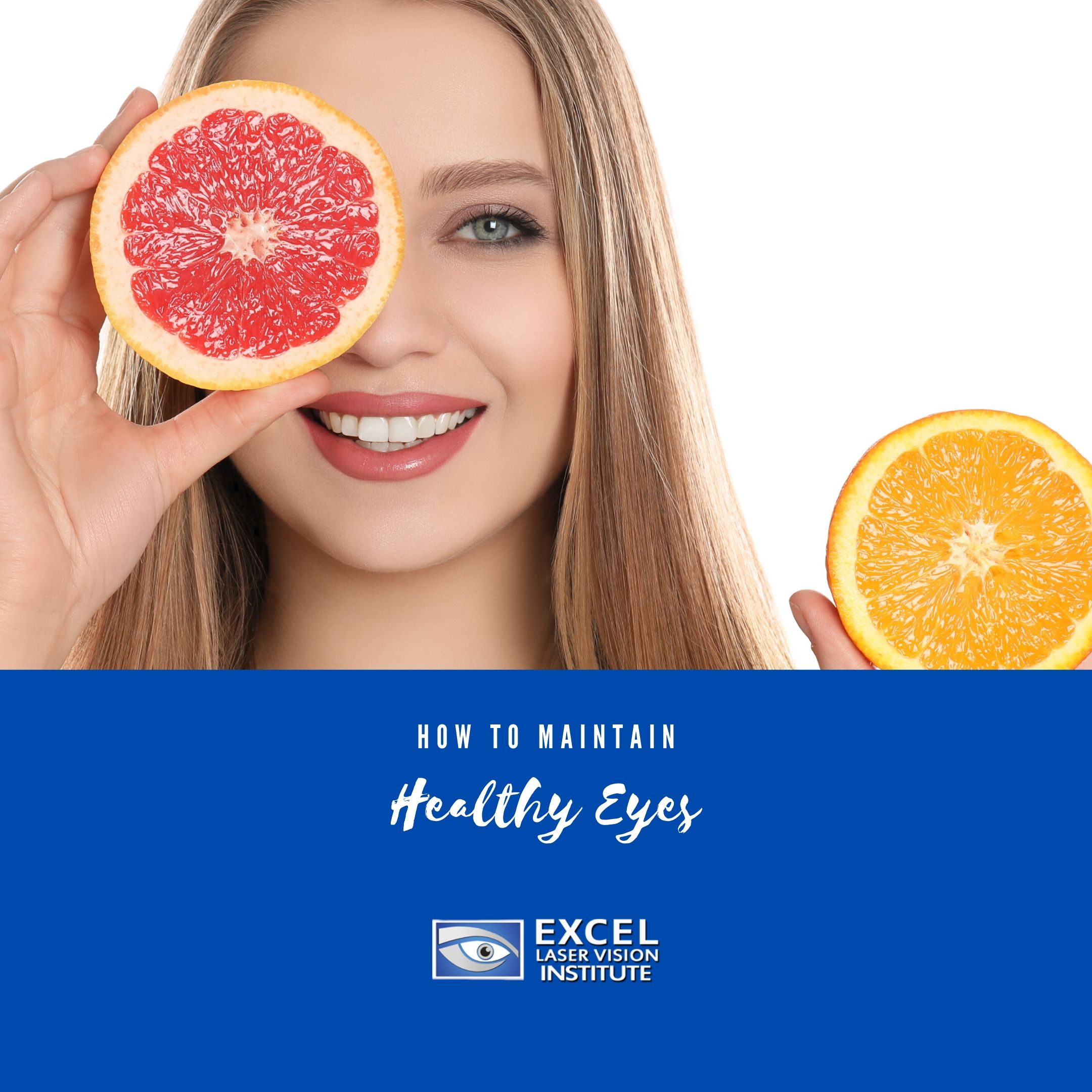
How To Maintain Healthy Eyes
Nowadays, everyone is concerned about staying healthy. According to a LASIK surgeon in Orange County, our eyes deserve particular attention at this moment. In order to minimize the risk of infection and potential vision problems as a result of poor hygiene, everyone should follow certain guidelines that will maintain the integrity of healthy, well-functioning eyes.
While we prioritize our general health, we should remember that our eyes do so much to improve our productivity, convenience, and quality of life. Here are some of the best ways you can protect your eyes, according to a LASIK surgeon:
Wash Your Hands
The number one tip that you will hear from any Orange County LASIK clinic is to wash your hands! Infections like conjunctivitis (or pink eye) can be contracted as a result of skipping this critical practice. You should also avoid sharing makeup, eye drops, towels, and any other product that gets near your eye with other people. This will minimize the spread of bacteria.
Limit Your Screen Time
According to a recent study, Americans spend an average of over 10 hours a day looking at a screen, whether that’s a computer, smartphone, TV, or other digital devices. This can cause a lot of eye strain and lead to dryness, fatigue, blurred vision, and irritation. In order to relieve your eyes from constant screen activity, you can try taking little breaks. Most eye care professionals recommend the 20-20-20 rule, which is that after every 20 minutes spent on a device, you should look 20 feet away for at least 20 seconds to give your eyes a chance to refocus. If you need to be inside for work, try to adjust your lighting so that it’s not too harsh for your eyes. You might even consider investing in blue light blocking glasses to help minimize screen time symptoms.
Take Care of Contacts
If you wear contact lenses, then you’re aware of the eye infection risks that come with this method of eye correction. You should always wash your hands thoroughly before inserting, removing, or adjusting your contact lenses. Follow your eye doctor’s instructions for daily cleaning methods and replacement timelines for reusable lenses. If you have the disposable kind, then remove and discard your contacts after each wear. Remember to remove your contacts before bed and only use the prescribed solution for cleaning your contacts. Tap water contains microorganisms that can attach to your lenses and cause infections.
Avoid Smoking
Many people are not aware that smoking can lead to macular degeneration, cataracts, dry eye, and uveitis. Recent statistics have shown that smokers are four times more likely than nonsmokers to experience blindness in old age.
Eat a Balanced Diet
In order to fortify your eye strength and vision, you should consume foods that are rich in vitamin A, vitamin C, calcium, and zinc. Try to incorporate vegetables like spinach, kale, and carrots in your diet. Salmon, apricots, and sweet potatoes are also good for your eyes.
Wear Sunglasses
One of the simplest things that you can do to protect your eyes is wear sunglasses! Harmful UV rays and radiation can cause cataracts and macular degeneration later in life. Make sure that your sunglasses offer full protection with UV400 or 100% UV protection written on the label.
It is so important to maintain good eye hygiene. Eyes are sensitive and valuable in our everyday lives. Serious inflammation and corneal infections can result in corneal scarring or even vision loss. So, in an effort to protect our bodies and our minds, everyone could practice better eye hygiene for a healthier, happier life.
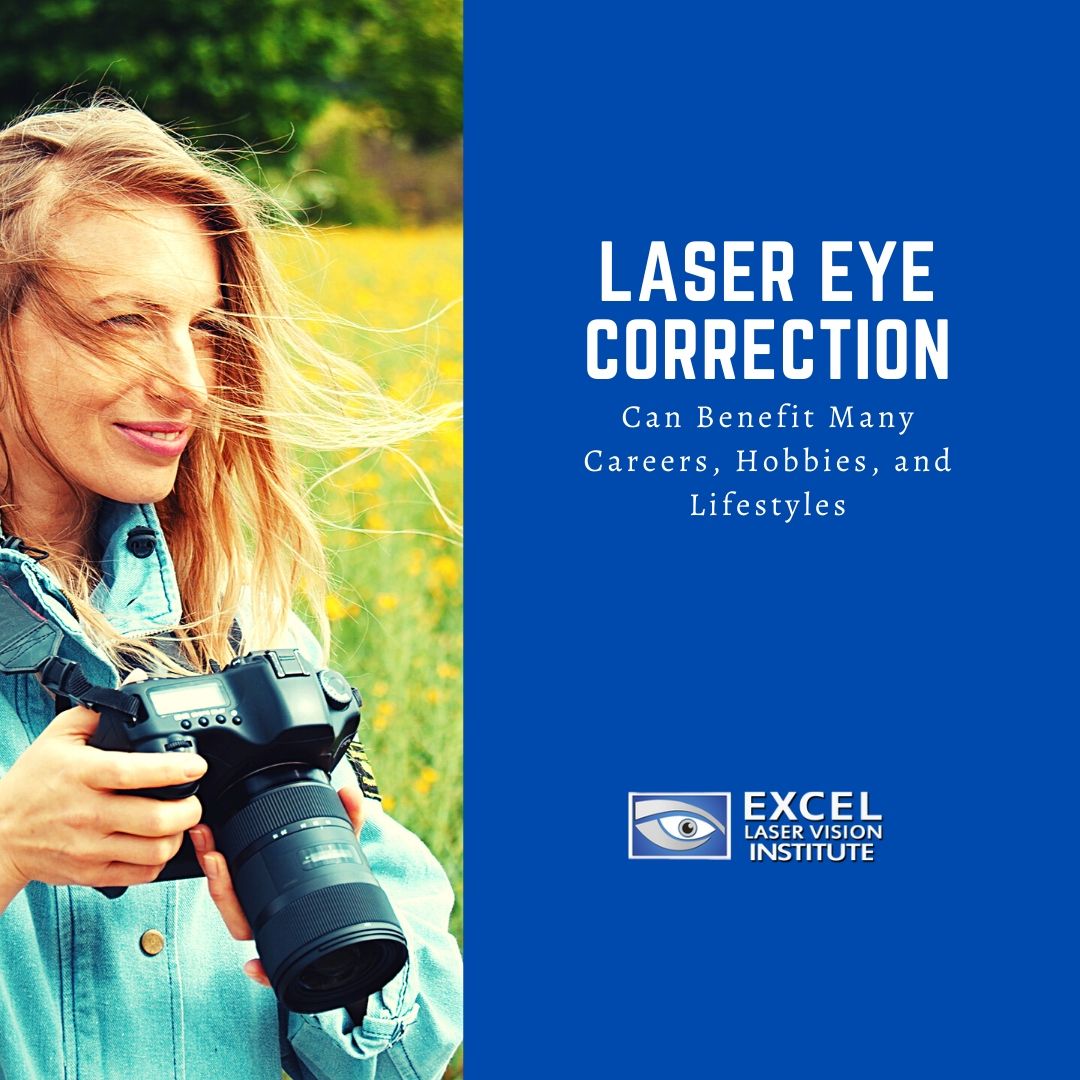
Laser Eye Correction Can Benefit Many
There are several reasons why someone might seek out an experienced LASIK surgeon in Orange County for laser vision correction. It might be to further their career or simply to make life more convenient. In either case, LASIK surgery can help people realize their full vision potential without always having to rely on their prescription glasses or contacts. This level of freedom can allow people to pursue hobbies, careers, and lifestyles that they’ve always wanted for themselves. Here are some examples of how LASIK can help individuals in specific ways:
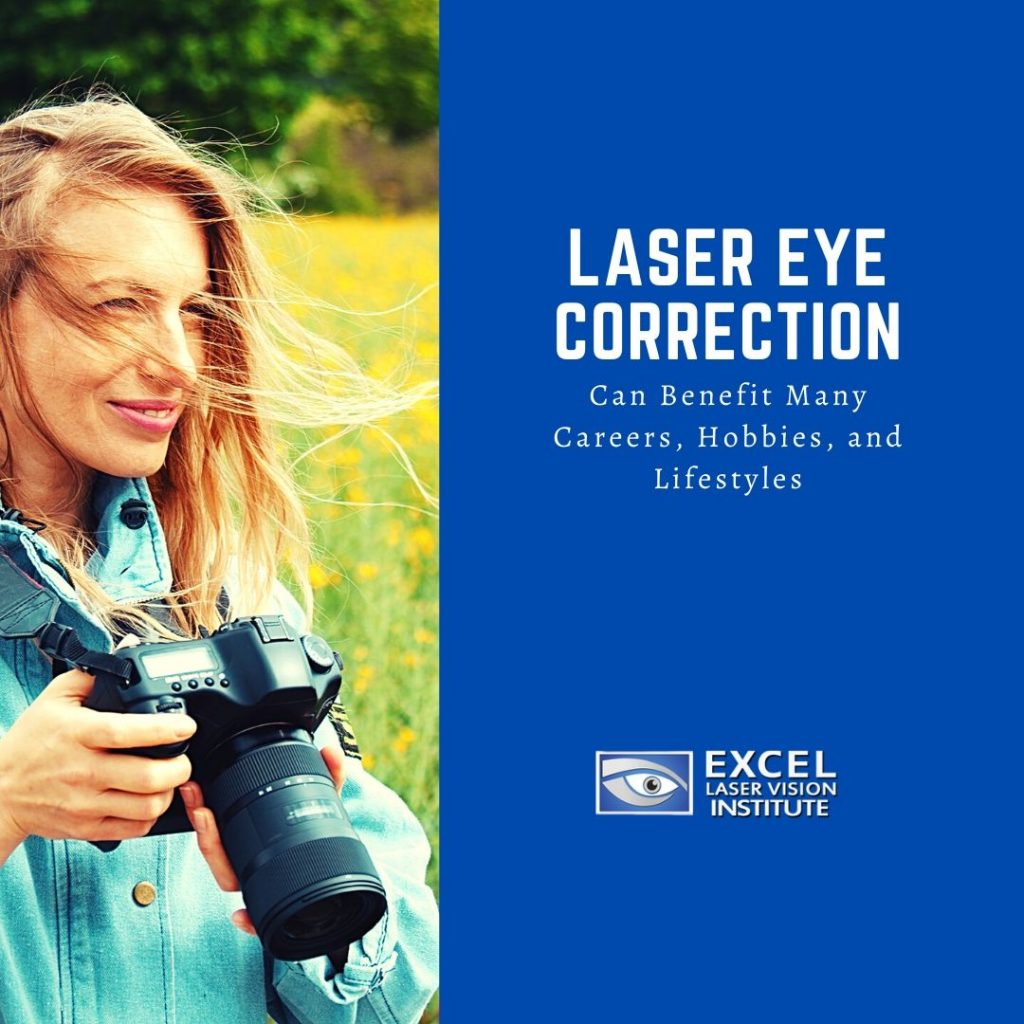
LASIK is Perfect for Parents
Whether you’re a stay-at-home parent or not, you know that looking after children is a full-time commitment. There are no sick days and no vacation days. So, when you struggle with your vision on a daily basis, this can make parenting even harder. Instead of always losing or directing your glasses or contacts, you could visit an Orange County LASIK surgeon to discuss laser vision correction. LASIK makes parenting tasks a breeze, from driving them to school to reading them a bedtime story to watching them as they play in the backyard. With excellent vision, you will feel more confident in your ability to look after your children and you will get to enjoy the experience to the fullest.
LASIK Can Help You Reach Your Career Goals
There are many people chasing certain career paths that could benefit from laser eye surgery from an Orange County LASIK clinic such as Excel Laser Vision Institute. Astronauts are one of the esteemed professionals that require excellent vision to get their job done. At NASA, astronauts are required to have 20/100 distant visual acuity or better uncorrected and corrected to 20/20 for each eye. Construction workers, firefighters, and law enforcement are other paths in which vision is necessary for safety and efficiency. Any profession that is battling the elements will need eye correction options that do not get in the way. Glasses and contacts can sometimes cause more problems than solutions in these cases. With LASIK eye surgery, people on the job don’t have to worry about letting anyone down because of their vision limitations. Emergency responders, surgeons, and lifeguards are another line of professionals that not only benefit from LASIK themselves but can also use this resource to help save lives because of the power and freedom that it grants them.
LASIK Lets You do What You Love
People with an inclination for any kind of creative expression will appreciate the freedom and clarity that LASIK eye surgery can give them. Having sharp eyesight is necessary to excel in photography as a career or a hobby. Glasses can be particularly burdensome for looking through camera viewfinders and shooting outdoor landscapes. Painters, sculptors, and mixed-media artists can improve their perspective of color, contrast, and depth with LASIK, which allows them to have a better handle on their art.
There are so many ways that LASIK eye surgery can support the career, hobby, or lifestyle you’ve always wanted. Through laser vision correction, many patients have been able to achieve 20/20 vision or better.
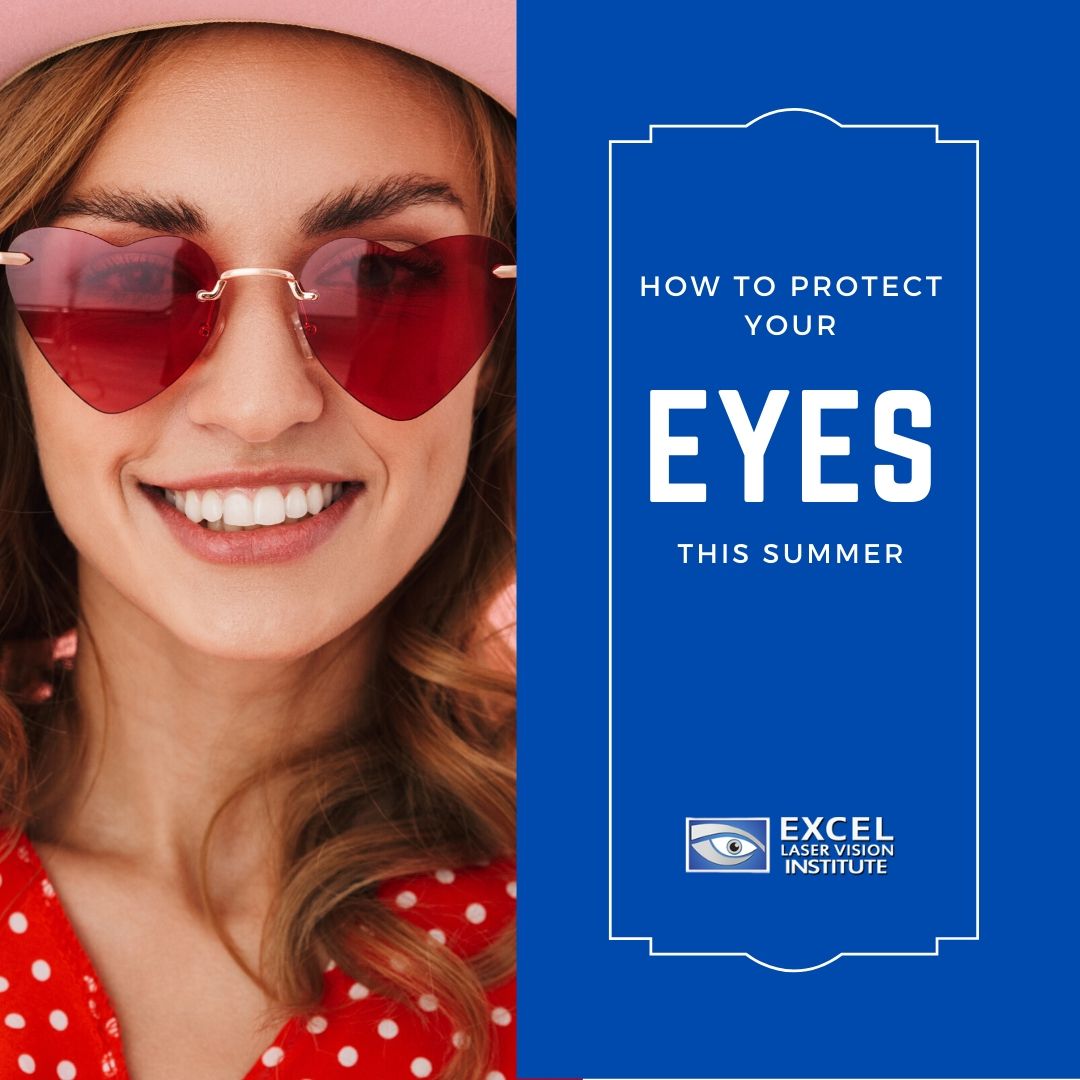
How to Protect Your Eyes This Summer
The trend that Los Angeles LASIK clinics are noticing is that many people only wear sunglasses as an accessory or when it is an especially bright day. LASIK specialists say that, whether or not you have undergone laser eye surgery, sunlight can significantly damage your eyes, just like it can damage your skin.
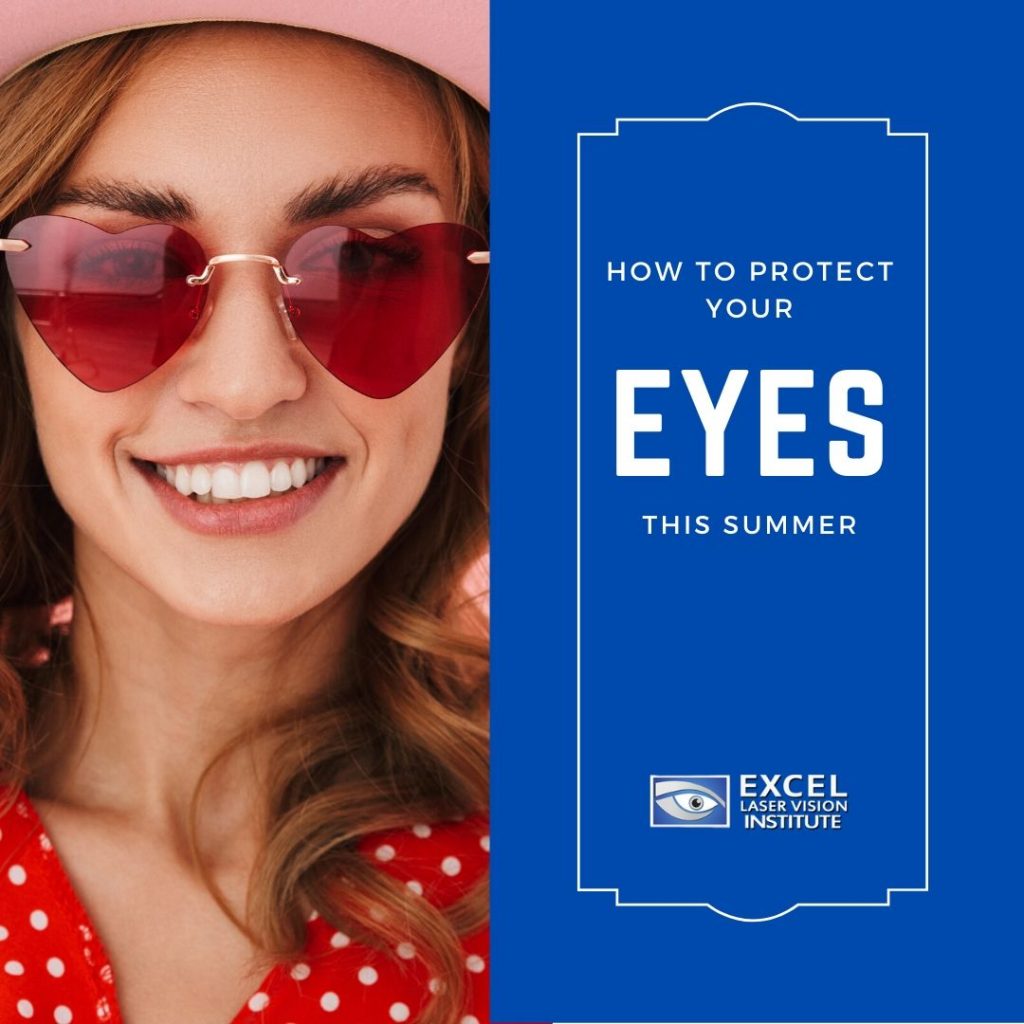
In the summertime, people are outside more frequently and, with long daylight hours, have increased exposure to UV rays. So, in order to prevent eye health issues down the road, it is important to use appropriate eye protection.
Cloudy days or cold days are no excuse to leave your sunglasses at home. In fact, the temperature has no effect on the amount of light that is seeping through the clouds. Many LASIK eye specialists in Los Angeles say that UV light can still harm you even when you don’t notice it. So, don’t be deceived by the kind of day it is when you look outside. Always have a pair of sunglasses on hand and wear them when you are spending extended periods outside.
When you are purchasing sunglasses to protect your eyes, make sure to choose the ones that are labeled 100% UV protection or UV 400. This means that the lenses are successfully filtering out those harmful rays. Fortunately, you don’t have to compromise on style or budget with UV-blocking sunglasses. There are plenty of attractive shades on the market that will offer the right protection without reaching designer prices.
Sunglasses should be your main source of eye protection during the summer months; however, there’s nothing wrong with adding a hat! Broad-rimmed hats or baseball caps can add another layer of protection by shielding light from directly above.
Another thing to keep in mind for your summer eye protection is the activities that you will be doing. If you are going to be swimming a lot, then you may think about purchasing some UV-blocking swimming goggles. These will not only protect your eyes from the sun but they will also keep your eyes safe from pool chlorine.
If you have children, then you will definitely want to introduce eye protection into their summer routines. While children may not experience the effects of sunlight damage right away, it is still a very real risk to their eye health and it could manifest later in life. Make sunglasses and hats a normal, comfortable part of their outside activities and they will start to pick up the habit.
When you are planning your summer days, make sure to consider when the sun will be at its peak in the sky and try to limit your outdoor activities in direct sunlight. Before noon or after five o’clock are the best times to plan an activity in order to avoid the strongest UV rays.
Your eyes deserve protection all year round, but they especially deserve it during the summer months, when you are more likely to spend extended periods of time outside. Buying some quality glasses, a hat, and maybe some swimming goggles is a low investment that will offer great results. So, make sure to grab your sun protection gear before you hit the beach, the pool, or wherever your summer adventures take you.
If you are tired of being limited by your glasses or contacts during the summer, then you can also visit a LASIK eye center in Los Angeles such as Excel Laser Vision Institute to discuss laser eye surgery. LASIK may be able to help you achieve your vision goals so that you are free to spend the summer how you choose, without worrying about your vision.
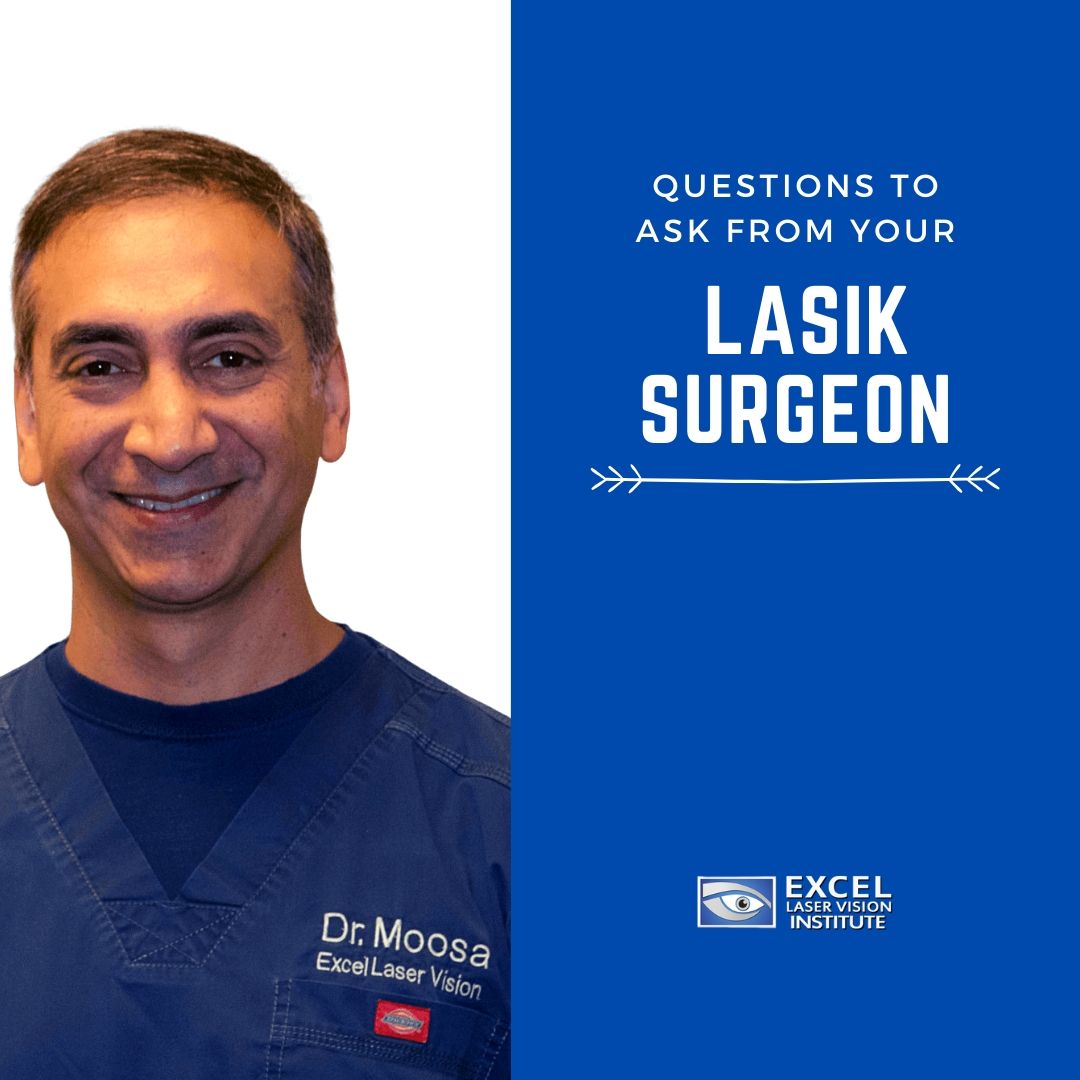
Questions To Ask From Your LASIK Surgeon
If you’re considering laser eye surgery and you want to speak to a LASIK surgeon in Orange County, then it is a good idea to have some questions prepared before you visit a clinic. Many people rely on the bits of information that they know about the procedure and forget to do their homework on the rest. Your LASIK eye specialist will likely provide all the information that you need about your procedure. However, it is not a bad idea to have a few other things clarified so that you can feel confident in your surgery. These questions will also help you evaluate the expertise of your surgeon and the kind of work they do at their clinic. Once you are fully on board with your choice of LASIK professionals, you will feel much better going into your procedure.
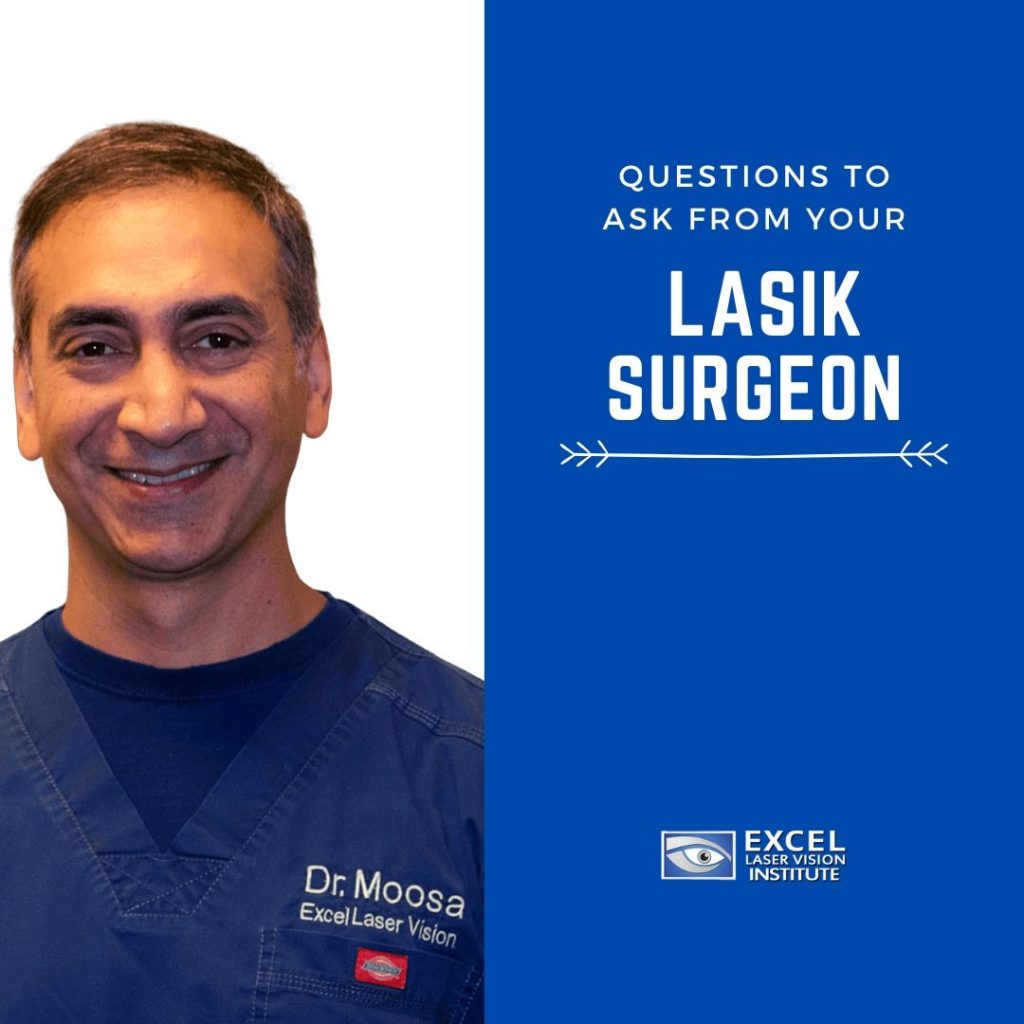
How many LASIK procedures has your surgeon performed?
Many patients ask this question in order to get a sense of their surgeon’s background and knowledge. While there is not a particular number that you should look for, you should use this information to gauge your LASIK surgeon’s level of experience and confidence in their ability to produce favorable results. You might also want to learn the types of laser eye surgeries that they have performed in order to see the range of their capabilities as an Orange County LASIK surgeon.
What kind of LASIK technology is used at this clinic?
The world of LASIK is continually shifting and advancing. So, it is important that your LASIK clinic in Orange County is using the latest and most efficient machines for your procedure. The kind of laser technology that a LASIK clinic has is especially important for procedures like bladeless LASIK. The better the machines, the more options you have for customizable procedures that fit your vision needs. Newer technology that is well-maintained will also improve accuracy results and safety.
Why are you a good candidate for LASIK?
LASIK is not right for everyone. Some people may require an alternative form of laser eye surgery like PRK or SMILE. Others may not benefit from refractive surgery at all because of preexisting health conditions. So, when you are discussing laser eye surgery with a LASIK specialist, be sure to have them explain your candidacy to you.
How can you prepare for your surgery?
There are a few different ways to prepare for the day of your surgery. Your LASIK doctor will likely convey all this information to you to make your procedure as efficient as possible with little to no discomfort. Some of the recommendations may be to avoid wearing makeup, to stop wearing contact lenses, and have comfortable clothing on. You can learn more about the best steps to take for your surgery by consulting your doctor.
What is the surgery like?
In order to feel more confident walking into your surgery, it is important to know what to expect. If you don’t know what LASIK is like, then go ahead and have your surgeon explain the process to you. You can ask them how long it takes, what they’re going to do, and what it’s going to feel like. It’s always best to know this information beforehand so you’re not caught off guard.
What happens after the surgery?
The last thing that you’ll probably want to plan for is your life after LASIK surgery, from recovery to beyond. You might want to ask your LASIK specialist how long the recovery period will last and what symptoms you should look out for. You can also learn how soon you’ll be able to return to your normal routine.
These are some good baseline questions that will help you feel more confident in your LASIK surgeon and LASIK clinic. If you have any others, feel free to ask! After all, this procedure is meant to accommodate your needs and your lifestyle. Once you fully understand the process, you can get started on achieving your vision goals!
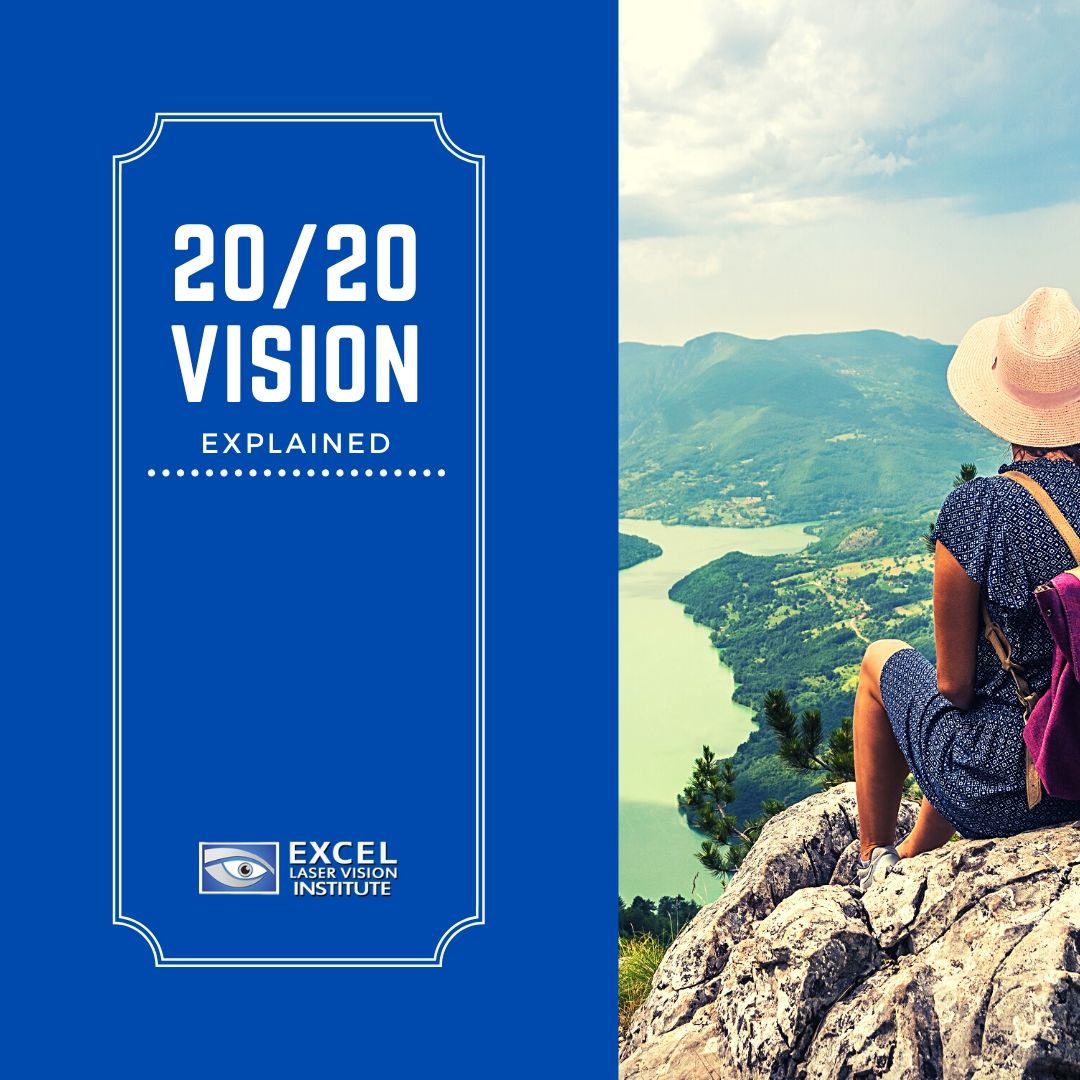
20/20 Vision Explained
Most people have an idea of what 20/20 vision means, even without speaking to a LASIK surgeon in Orange County. However, this measurement of visual acuity is not always understood in the fullest context, which fuels the common misconceptions that people have about eyesight and vision correction. In order to bridge the gap of information, LASIK eye specialists are here to explain how vision sharpness is measured in the medical field and what that means for people who want to improve their current eyesight.
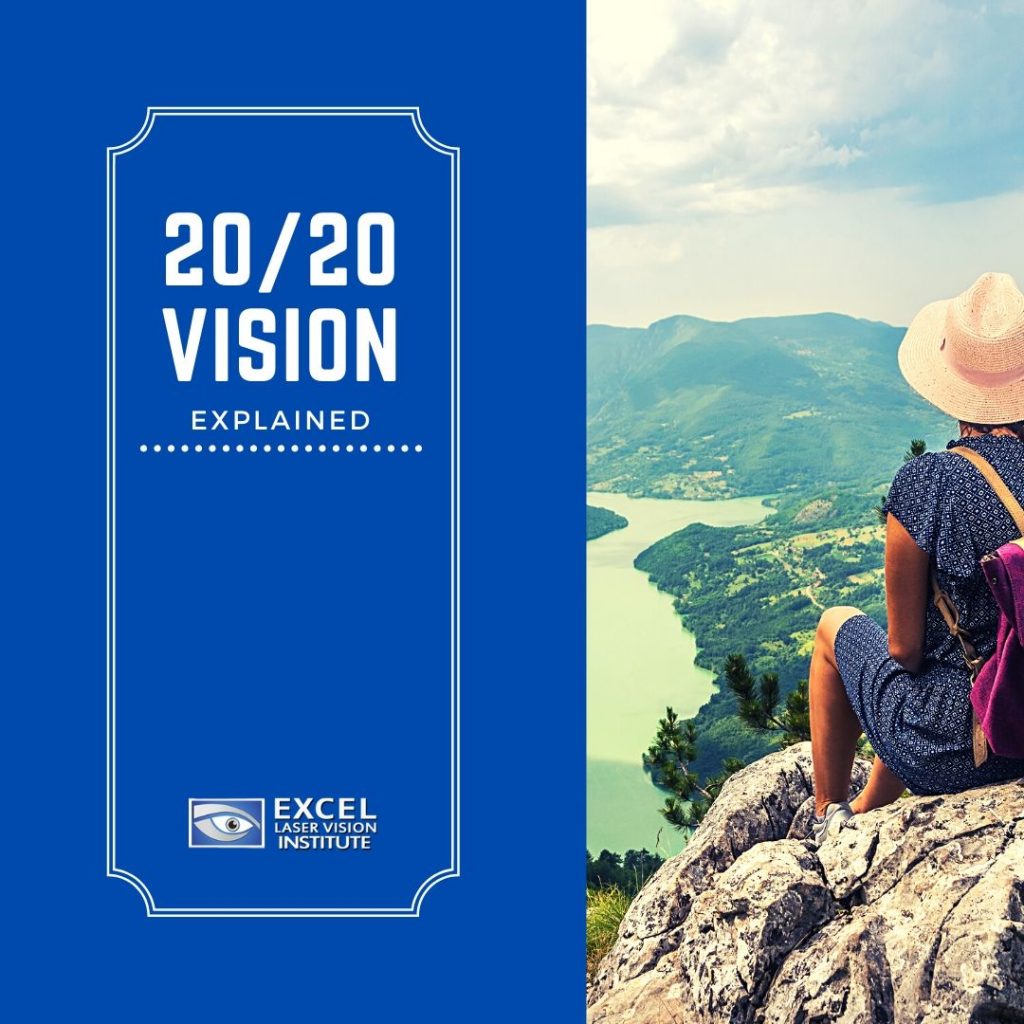
If you’ve ever had an eye examination, then you’re familiar with the letter chart that most clinics use to judge a person’s visual acuity. The characters get smaller on each line, all the way down to the bottom. An eye doctor can measure the strength of your eyesight based on how far down the chart you can clearly read.
These letter charts are named after Dr. Herman Snellen, the Dutch ophthalmologist who first started integrating them into medical practices. Snellen eye charts are standardized in format and size. Visual acuity correlates to the lines of the chart and is written as a fraction.
When you see 20/20, the two numbers represent different aspects of the Snellen refractive test. The first one (the top of the fraction, or the numerator) is the distance of the chart from the patient. So, in the case of 20/20 vision, the doctor has measured 20 feet of viewing distance. Since not all examination rooms have 20 feet of space, many doctors will utilize a mirror system to simulate this distance.
The second number (the bottom of the fraction, or the denominator) represents the smallest line that the patient can read. The top row is usually measured as 20/400, and the number decreases from there. This explains why 20/20 vision is better than 20/30 or 20/40. However, the smallest line does not stop at 20/20. While many people believe that 20/20 is perfect vision, it is actually just a baseline of good vision for the general population. The Snellen chart has lines that reach 20/15 or 20/10.
Visual acuity can be important for many different careers and lifestyles. Those who wish to serve in the military or become a pilot need 20/20 vision and civilians who want to obtain a driver’s license need 20/40. Orange County LASIK clinics have helped many people achieve their vision goals through laser eye surgery.
There are other factors that contribute to vision strength, besides visual acuity scores. Some of these optic elements include eye coordination, color vision, visual perception, binocular vision, and eye focusing. When you visit a surgeon, they will be able to determine the exact issues that your eyes are facing and recommend a procedure that will most benefit you.
Understanding visual acuity is the first step to confronting your vision problems and taking the proper steps to correct them. You can schedule an appointment with an Orange County LASIK surgeon like Doctor Moosa to get a thorough eye examination and consultation. Now that you understand the basics of 20/20 vision, you can ask the right questions and strategize with an eye care professional to achieve the vision you’ve always wanted.
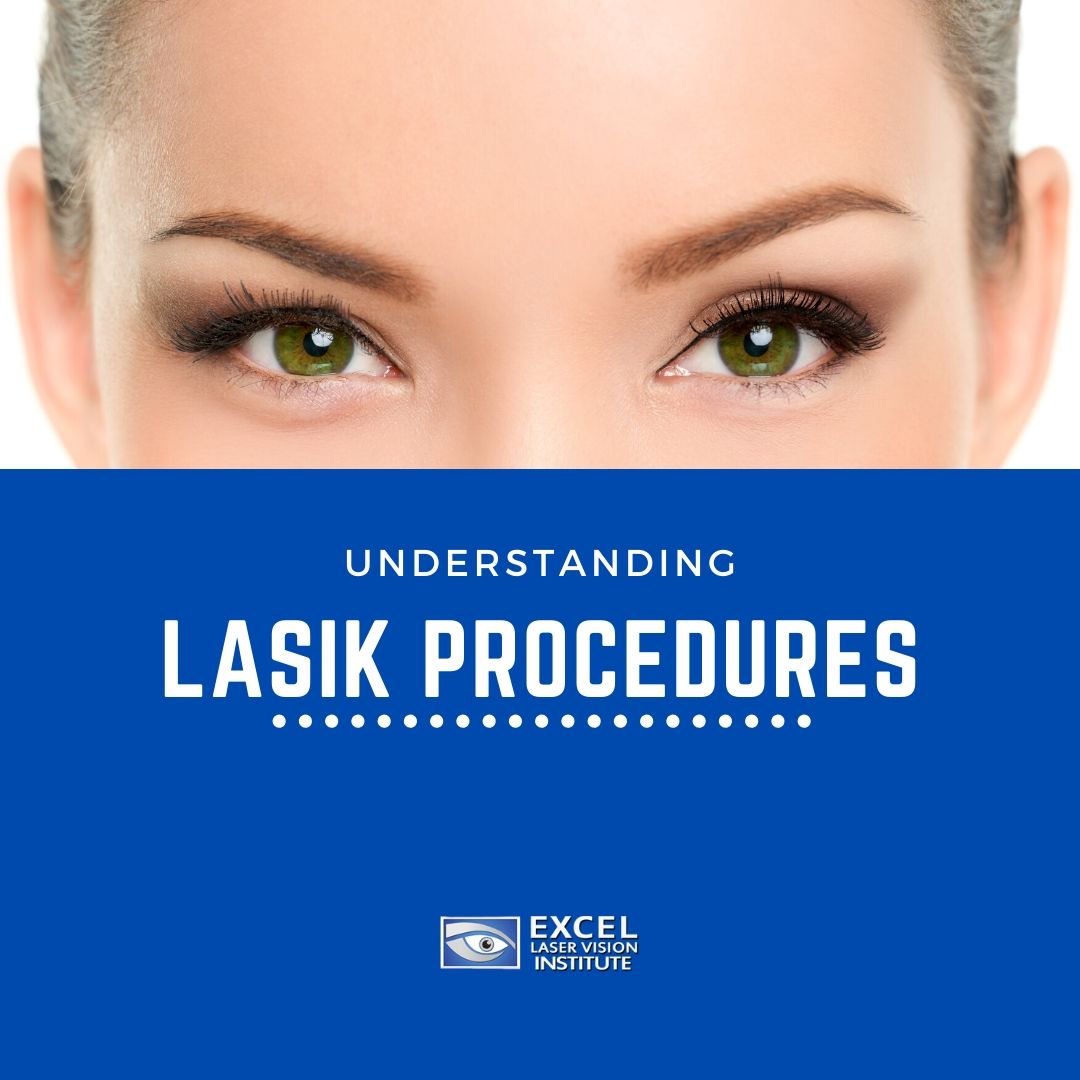
Understanding LASIK Procedures
While many people have heard of laser eye surgery or know someone that has visited a LASIK clinic in Los Angeles like Excel Laser Vision Institute, not many people fully comprehend the process as it relates to vision correction. This lack of understanding can contribute to the spread of misinformation and misconceptions about LASIK. In an effort to remedy the general confusion on the topic, LASIK eye specialists are here to explain some important details about this particular kind of refractive surgery.
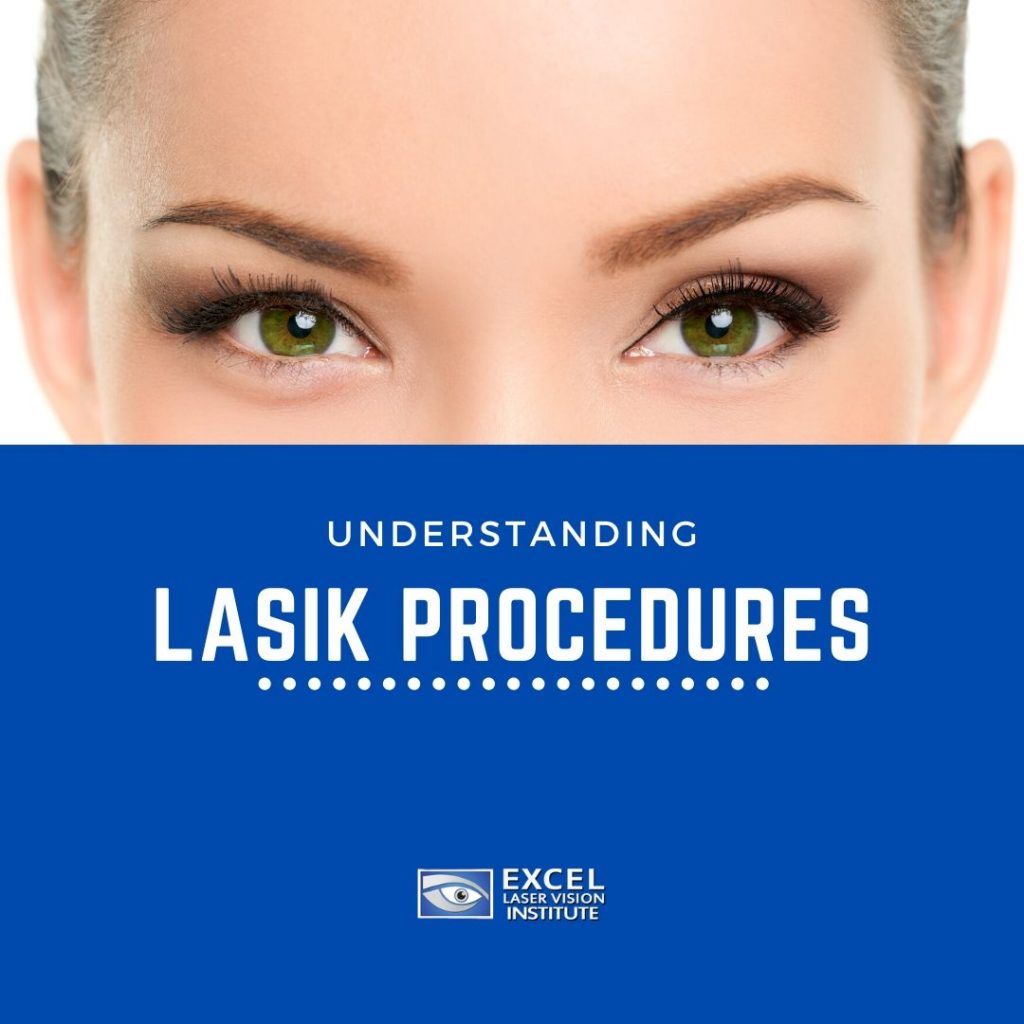
LASIK surgery requires two distinct steps. The first is the creation of a corneal flap and the second is the reshaping of the cornea. While these two actions do not make up the entirety of the procedure, they are the basic operative measures. All other steps revolve around these segments of vision correction.
Corneal Flap
The cornea is the clear outer layer of the eye. It helps your eye focus the light that passes through. This layer is the first point of interception for what you see and perceive. You can think of it as a window. In order to focus light properly, the cornea has to be shaped in a certain manner. Distorted corneal lenses can affect your vision negatively.
When you experience nearsightedness or farsightedness, it could be the result of a misshapen cornea, which blurs your vision. Many people visit a LASIK eye center in Los Angeles like Excel Laser Vision Institute for this very reason. LASIK has been known to treat myopia, hyperopia, and astigmatism. The success of this procedure has allowed many patients to achieve their vision goals without the aid of their prescription glasses or contact lenses.
When a LASIK surgeon is creating the corneal flap, they will likely use a microkeratome blade or laser. This will all depend on whether you are receiving blade or bladeless LASIK. You can speak to an eye specialist at a Los Angeles LASIK clinic such as Excel Laser Vision Institute about these two different methods and see which one fits your vision needs better.
Corneal Reshaping
For the precise reshaping of the cornea, a LASIK surgeon will use an excimer laser. This technology has many names, depending on the brand and manufacturer, but it provides the same level of programable accuracy. Excimer laser technology has also advanced over the years to provide a greater depth of customizable properties. With the use of this laser, LASIK surgeons can successfully reshape the living tissue in a person’s cornea without damaging it or any other part of the eye.
The excimer laser functions by eliminating microscopic cells in the cornea that sit under the surgical flap. Topography-guided technology is the key to a procedure that targets each patient’s specific vision correction needs.
After LASIK
The surgery is complete once the LASIK eye specialist replaces the corneal flap and applies any necessary bandages to promote healing. The recovery process is relatively quick and painless. Many LASIK patients are able to return to their regular driving, working schedules by the next day. Your LASIK surgeon will discuss post-operative care with you before you undergo the surgery. Nearly 80% of vision is achieved within the first few days of the procedure and vision strength continues to improve as the eyes fully heal and adjust.
It is important to attend all post-surgery appointments and discuss your vision progress with the LASIK eye specialist. LASIK eye surgery can help many patients achieve 20/20 vision or better!
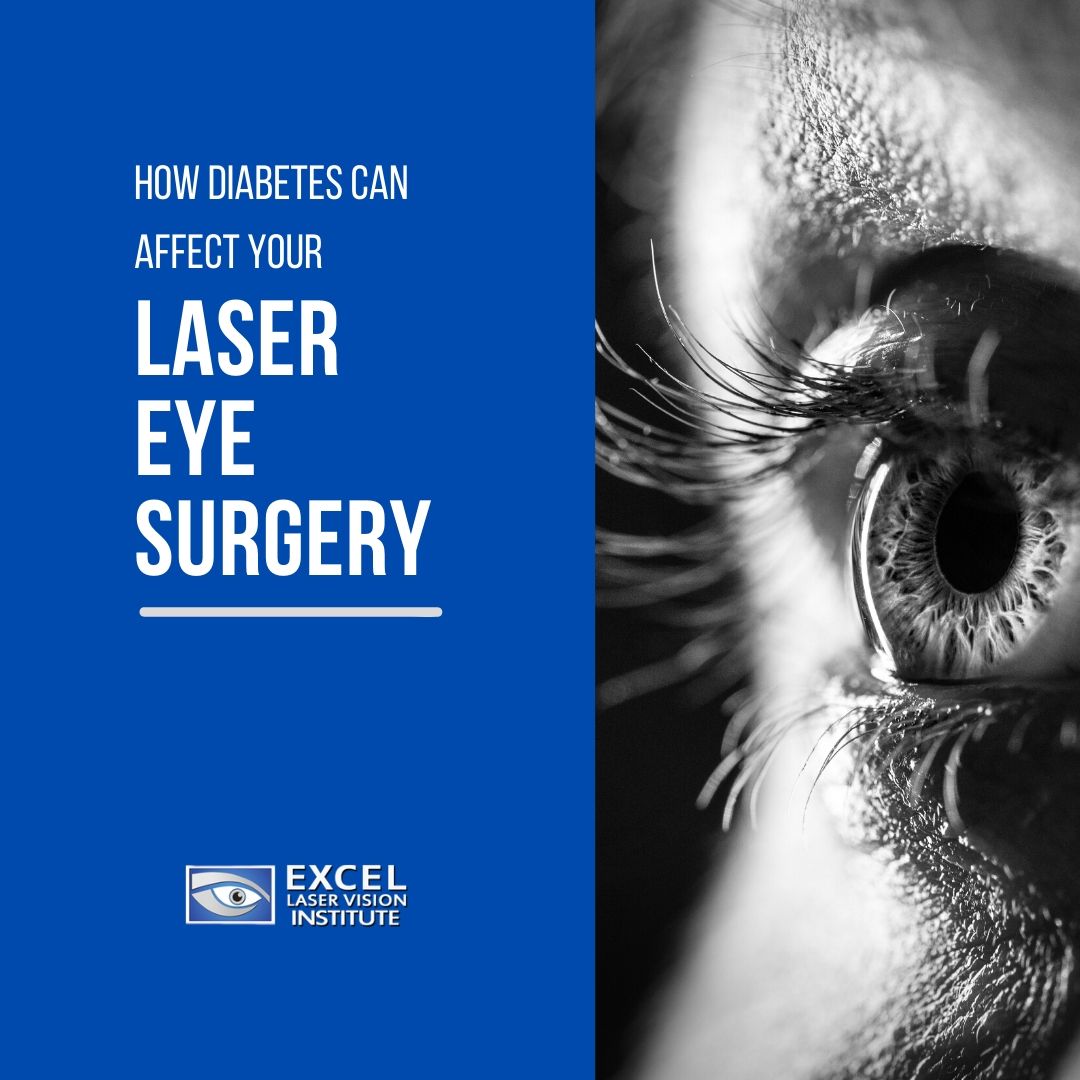
Learn How Diabetes Can Affect Your Laser Eye Surgery
There are so many benefits to getting laser eye surgery. It’s an investment well worth the time, money, and energy you save not having to maintain prescription eyeglasses or contacts. Many people who seek laser eye surgery from an experienced LASIK surgeon in Orange County such as Doctor Moosa say that it is life-changing.
The process is described as quick, painless, and effective with one of the highest satisfaction rates for an elective surgery. The laser technology at a LASIK Orange County clinic, Excel Laser Vision Institute, is optimized to serve a variety of eye conditions with safe, targeted precision. However, it is a well-known fact that not anyone can just walk into a LASIK Orange County clinic such as Excel Laser Vision Institute and get the procedure without an extensive evaluation.
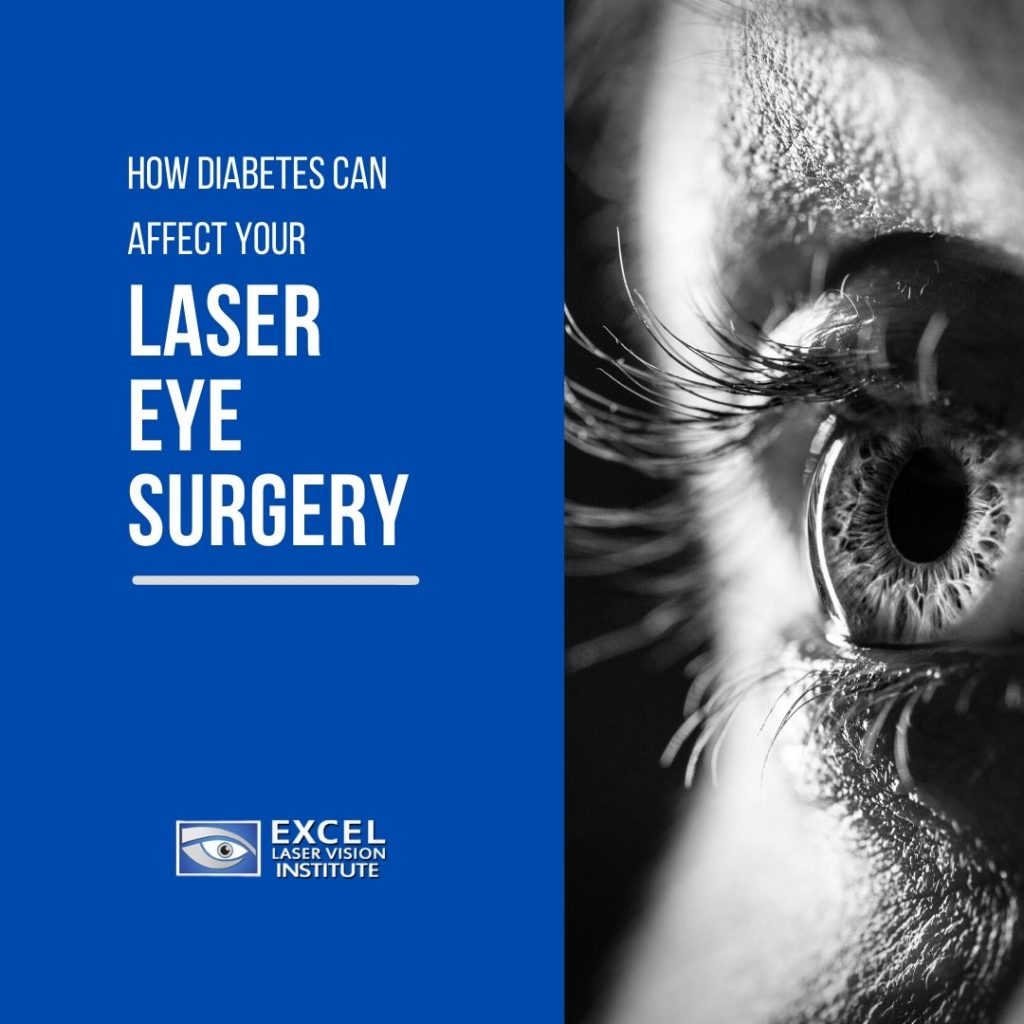
In order to qualify for the procedure, patients are given an eye examination and consultation where a LASIK surgeon in Orange County can determine multiple factors relating to their eye condition and general health. For certain patients with preexisting health conditions, even non-optical ones, LASIK may not be a viable option. However, it is always important to consult a LASIK specialist before ruling out the possibility. For example, diabetes is quite a common preexisting condition that many people have who seek LASIK surgery.
Diabetes is one of the most common health conditions affecting Americans today. In a 2015 study, there were around 30.3 million people with diabetes in the United States. In light of this statistic, it makes sense that a good portion of LASIK candidates would also have diabetes. Fortunately, this health condition is not an automatic disqualifier. Some patients with diabetes are still able to receive laser eye surgery from an experienced LASIK surgeon in Orange County, Doctor Ferzaad Moosa.
Diabetes and Our Eyes
Diabetes is a disease related to metabolic systems that causes a person’s blood sugar to rise. When someone has diabetes, they lack enough insulin to transport glucose (sugar) into various cells from the bloodstream. Thus, the sugar accumulates in their bloodstream, which can lead to damage to vital organs. People who are not able to regulate their insulin levels can suffer from nerve damage, kidney disease, heart attack, stroke, vision impairment, and blindness. Technically, there is no cure for this disease. However, people can learn to manage it with an active, healthy lifestyle.
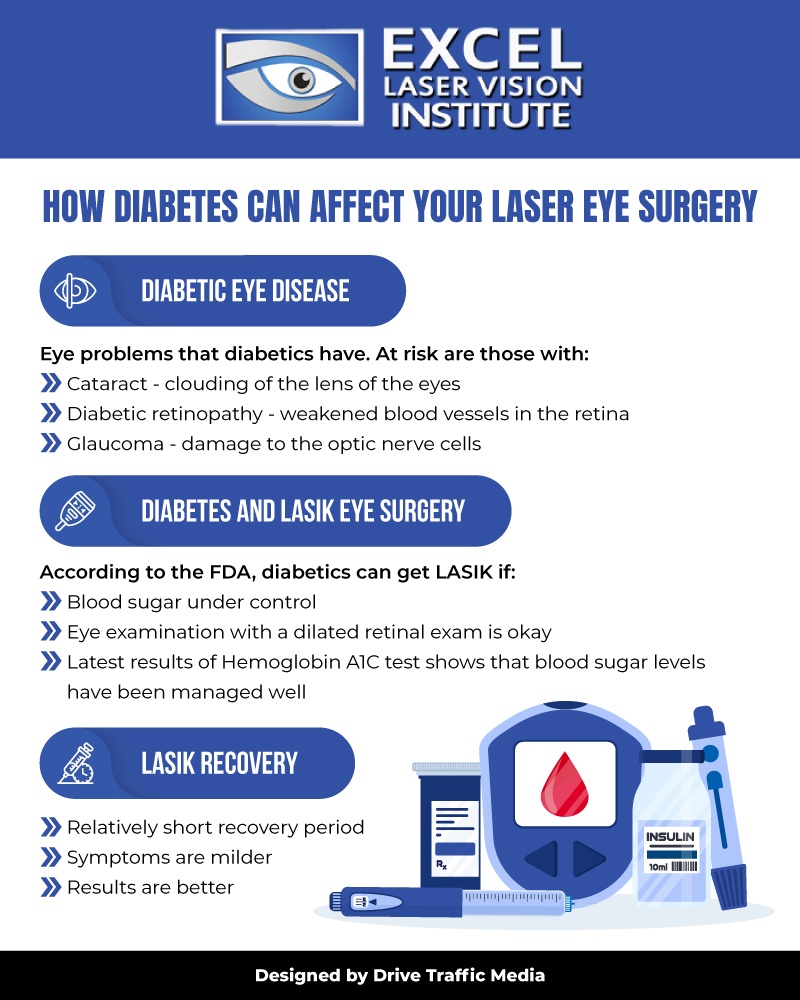
Now, that you know a little more about diabetes, you can see how it affects elective procedures like LASIK. Eye-related complications can be quite common with diabetes, which is why it is important for a LASIK specialist to evaluate a patient thoroughly before they are qualified to receive the surgery. Here are some of the eye conditions that can arise from diabetes:
- Diabetic retinopathy: With diabetes, patients are more at risk for weakened blood vessels in their retina. This can cause tissue swelling, bleeding, and vision impairment. Continuous inflammation and ischemia can lead to permanent damage to the retina and blindness.
- Cataracts: Since diabetic patients have trouble regulating their blood sugar, they are at risk for developing cataracts at a younger age. Cataracts refer to the clouding of the crystalline lens. If left untreated, they can severely impact one’s vision and prescription stability.
- Glaucoma: This condition has to do with damage to the optic nerve cells, which affects one’s vision. These damages can lead to permanent vision impairment or blindness if not detected early on.
Diabetes and LASIK Eye Surgery
According to the FDA, diabetic patients who seek LASIK may qualify for the procedure under certain favorable conditions. With patients who have their blood sugar under control, elective surgeries like laser eye surgery are far more viable. So, it all depends on the case and the result of a LASIK doctor’s evaluation.
When being considered for LASIK eye surgery, an eye doctor will ask you about your diabetes history. They will also give you a thorough eye examination with a dilated retinal exam to ensure that you are safe from any diabetic-related conditions. Through this evaluation, they will also measure your level of prescription just as they would with any potential LASIK candidate. Lastly, a LASIK specialist will ask for the latest results of your Hemoglobin A1C test to see if your blood sugar levels have been managed well in the last few months. As long as your form of diabetes is within an acceptable range of stability, you will be able to move on to the next step of your LASIK process.
LASIK Recovery
Many people are aware that diabetic patients often take longer to heal after surgeries and have a higher risk of complications. Fortunately, eye surgeries have not been indicated in this risk, and LASIK technology has greatly improved over the years.
LASIK is known for having an especially short recovery period, which is beneficial to diabetic patients who are considering refractive eye surgery. A LASIK specialist will likely recommend a LASIK procedure over alternatives like PRK, which might involve more time for healing.
In general, LASIK technology has evolved to be more precise and comfortable for patients of all health backgrounds. This means that recovery is easier, symptoms are milder, and results are even better.
After receiving LASIK eye surgery, diabetic patients will still require regular eye examinations and doctor’s visits in order to monitor vision progress and maintain optimal health conditions. With the help of trained professionals, patients will get to enjoy their new vision while still managing their diabetic condition.
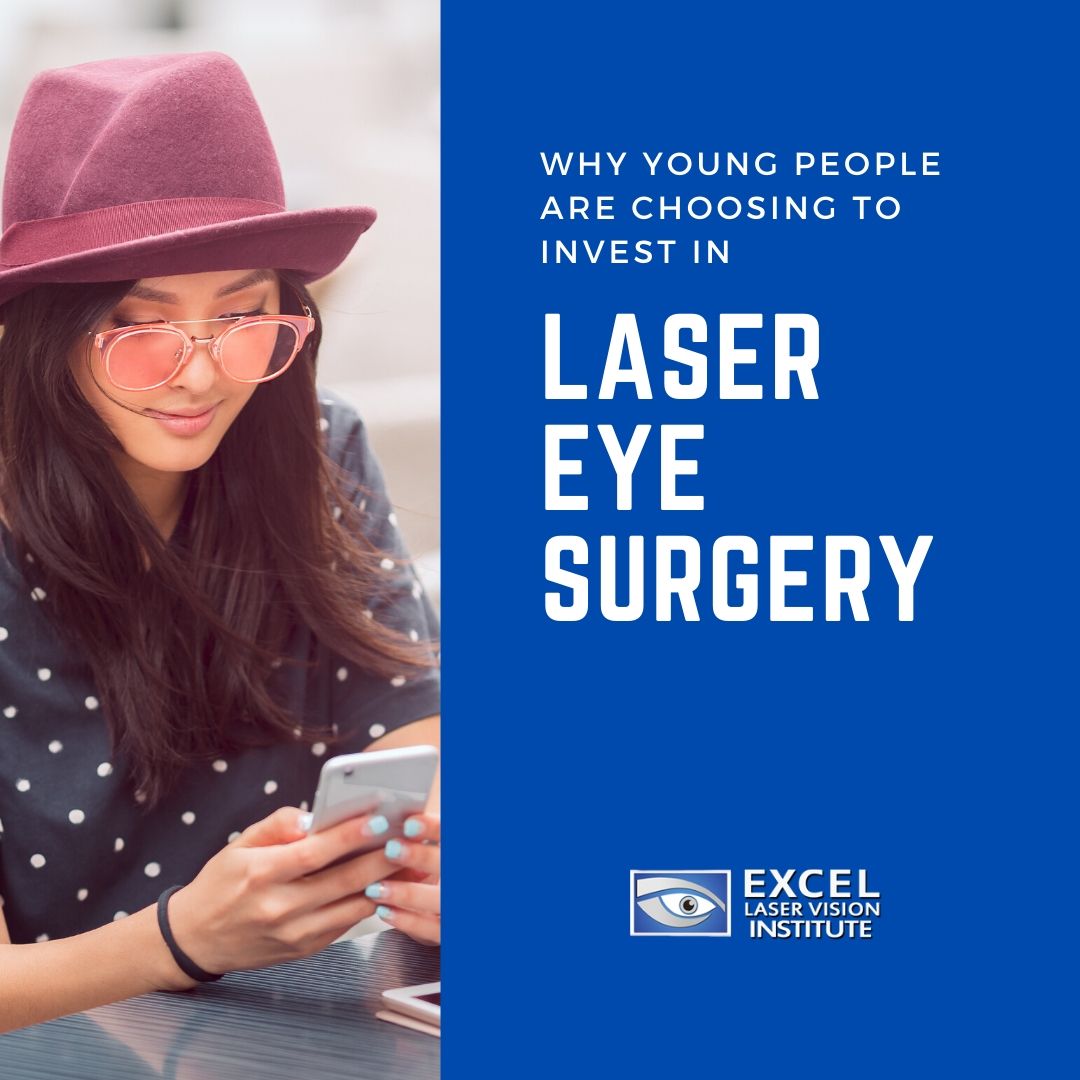
Why More Young People Are Choosing to Invest in Laser Eye Surgery
LASIK eye surgery has slowly joined the ranks of popular vision correction options over the years, especially among young people. While retro, hippie glasses have been a recent style trend, many younger folks are starting to see the appeal in clear vision without having to rely on eyeglasses or contacts. LASIK Los Angeles clinics like Excel Laser Vision Institute are starting to see a significant shift in the demographic that they are reaching.
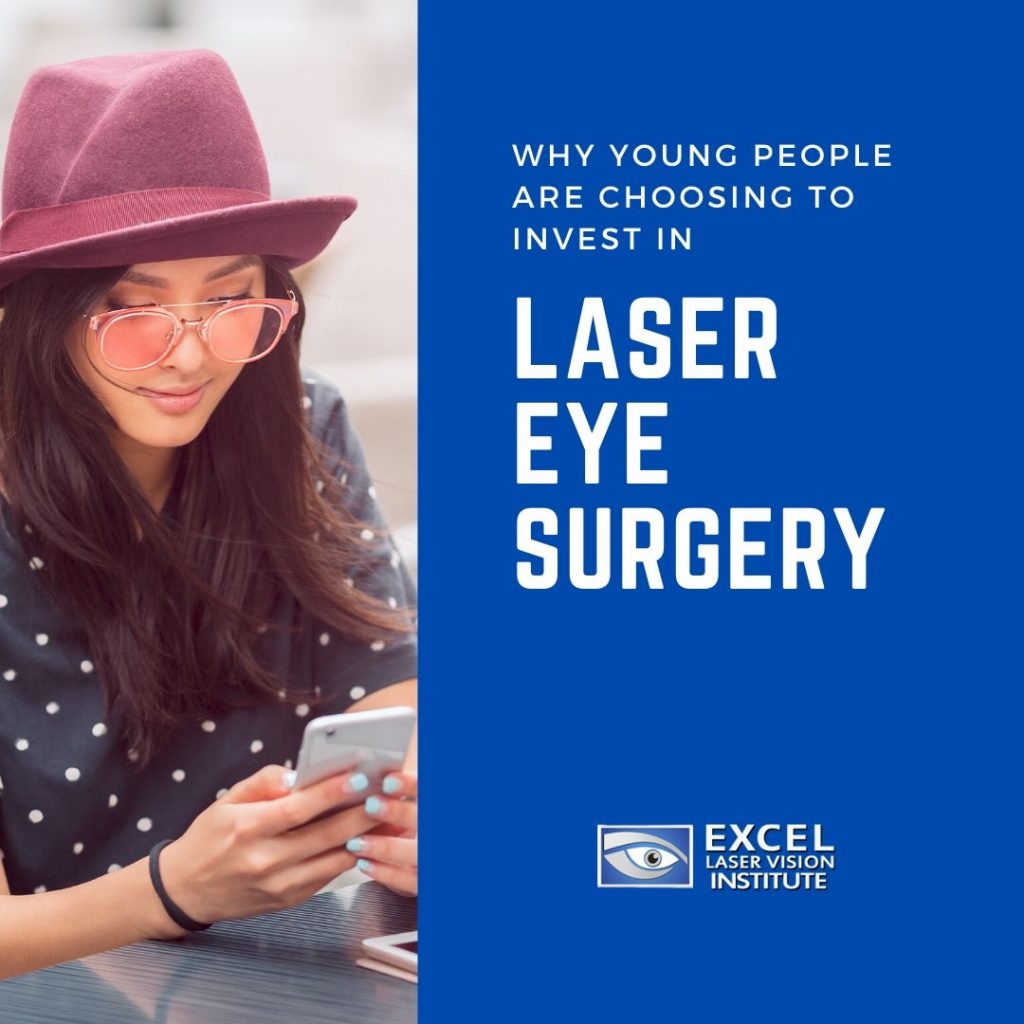
There are many reasons for this increased interest in laser vision correction from young people. Contrary to popular belief, the millennial generation is very active and interested in pursuing non-digital activities. While many people imagine millennials to be attached to their phones, a recent study shows that 7 out of 10 millennials strive to live a healthy, active lifestyle. This includes yoga, surfing, hiking, and other athletic activities. With more active lifestyles, many young people with eye prescriptions are starting to run into the same inconveniences that other generations have faced for years.
Another reason that young people are starting to seek laser vision correction at LASIK Los Angeles clinics such as Excel Laser Vision Institute is that they value their freedom and independence. With busy lives and irregular schedules, it is helpful to not have one extra thing to worry about. More young people are visiting Exceleye’s LASIK eye center in Los Angeles to ask how they can successfully eliminate glasses and contacts from their life while achieving their vision goals.
LASIK Los Angeles clinics have found that younger folks are more interested in LASIK after doing their research. Millennials like to stay informed on the latest innovations in technology and enjoy reading trusted sources to learn how this is being used to benefit society. Unlike older generations, young people are more confident in the effectiveness of technology when it comes to medical and cosmetic use. As they read more about the positive LASIK eye surgery success rate, millennials become more convinced that this is a viable alternative to their current vision correction method.
LASIK isn’t, in any sense of the word, cheap. And millennials love saving money. However, young people are starting to realize that getting LASIK eye surgery may be more cost-effective than maintaining their current eyewear for years to come. Instead of having to pay each year to replace prescription glasses and sunglasses or having to buy contacts every month, LASIK exists as an investment option that will, essentially, pay for itself in money, time, and convenience as the years go by. Younger folks like the idea of having a long-term solution and LASIK financing options make this investment far more manageable.
The current age restriction for LASIK eye surgery is 18 years or older. Now that many people are experiencing poor vision at a young age, they are ready for a solution once they reach young adulthood. The new average age of contact lens wearers is between 11 years old and 13 years old, which means that young people are dealing with eye issues for years before they qualify for LASIK. So, they are more likely to be proactive and jump into the process when they can instead of putting it off for later.
When LASIK technology was first being developed and researched, there was a certain hesitancy to perform the surgery on younger people with more changeable prescriptions. However, many clinics are now confident in their ability to find a patient’s “true prescription” and tailor each LASIK procedure to fix each individual eye condition. However, some LASIK clinics will still advise a patient to wait until their prescription remains stable for at least a year. If you are not sure whether your prescription qualifies you as a LASIK candidate, you can always go in for a full eye examination and consultation to see whether the procedure is right for you.
In terms of paying for LASIK, young people are finding that there are many financial options to make the total cost a manageable part of their budget. There are some LASIK providers that offer insurance savings through a health savings account (HSA) or flexible spending account. LASIK providers will also offer financing options that break up the total cost into reasonable installments.
For over 30 years, LASIK has been a successful procedure that is widely known and spoken about in the United States. Many millennials have grown up hearing about it and may even know family members or friends that have gotten the surgery. Now that they have reached adulthood, they are starting to consider it as a solution for their vision goals. They have heard that’s fast, painless, and cost-effective. This is probably why 63% of people who got LASIK between the years of 2012 and 2013 were 18 to 34 years old. Once young people started trusting in the value of LASIK, they started spreading the word. Since the internet has so many platforms where young people can discuss various topics and experiences, LASIK has gained traction in millenial conversations and began having an influence on the average demographic. Now that young people are starting to get LASIK, they are realizing that there is a world of opportunity out there for them. With a hassle-free clear vision, their quality of life greatly improves and they can move on to do great things.

